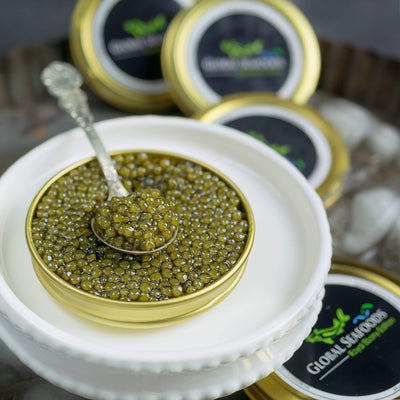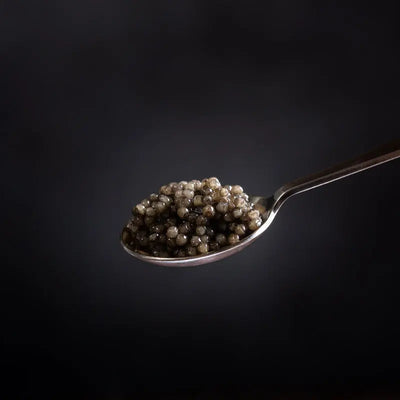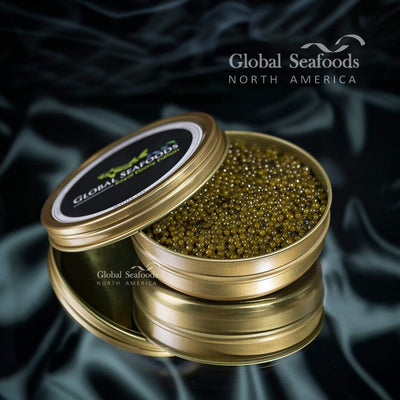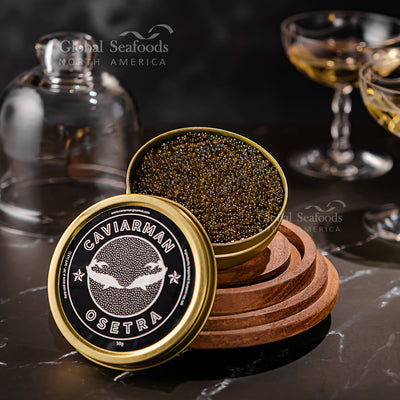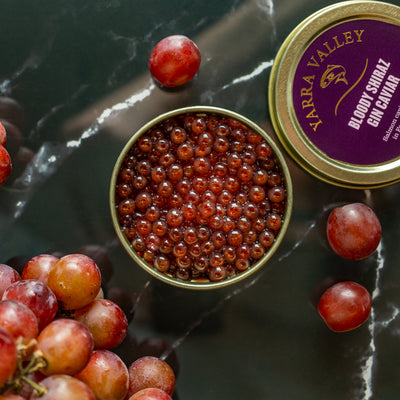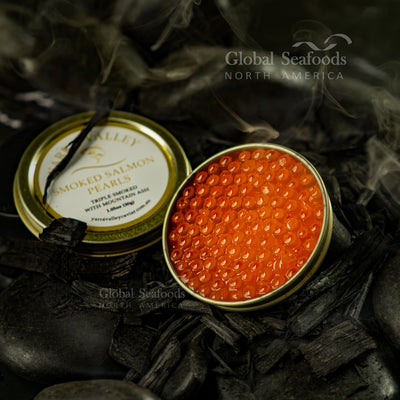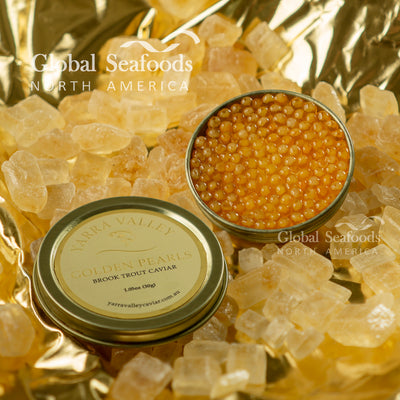+Shop Now
+Categories
- Abalone
- Ahi Tuna
- Alaskan King Crab Legs
- Alaskan Pollock
- Alaskan Sockeye Salmon
- Albacore Tuna
- Anchovy
- Anxiety Relief
- appetizer
- Atlantic Salmon
- Beluga Caviar
- Best Sushi
- black caviar
- black cod
- Blue crabs
- Bluefin Tuna
- Brain Function
- Branzino
- breakfast
- Calamari
- caviar
- Caviar Recipes
- Chef Knives
- Chilean Sea Bass
- Clams
- cocktail caviar
- Cod
- Coho Salmon Caviar
- collagen
- Cooking Methods
- crab
- Crab Balls
- Crab Cakes
- Crab claws
- crab meat
- Crab Recipes
- culinary tips
- decline-sturgeon
- Diver Scallops
- Dover Sole
- Dry Aged Fish
- Dungeness Crab
- Dungeness crab clusters
- Dungeness Crab Legs
- Exotic Shellfish Sampler
- Fish and Seafood
- fish oil
- Fish Sauce
- flat fish
- FLOUNDER FISH
- Focus
- Fresh Seafood Delivery
- Fresh Wild Alaskan Salmon
- Geoduck
- Gooseneck Barnacles
- Gourmet Seafood Platter
- haddock
- halibut
- Halibut Recipes
- hamachi
- Hamachi Recipe
- health
- healthy eating
- Ikura
- Japanese restaurants
- Jonah crab
- Jumbo Sea Scallops
- Kaluga Caviar
- kelp
- king crab
- King Crab Legs
- King Salmon
- kitchen
- Lingcod
- Live King Crab
- Live Lobsters for Sale
- Live Scallops
- Live seafood
- lobster
- Lobster Tail
- luxury food
- mahi mahi
- Marine Collagen
- Mollusk
- Monkfish
- Mussels
- New
- Nutrition
- octopus
- Opah
- Ora King Salmon
- Osetra Caviar
- Ossetra Sturgeon Caviar
- oysters
- Pacific Cod
- Pacific Hake
- Pacific Halibut
- Pacific Ocean
- Pacific Whiting
- Pacific Whiting Recipe
- Paddlefish Caviar
- Petite Oysters
- Petrale Sole
- Poke Tuna
- Pollock
- Pregnancy
- Premium Caviar Selection
- Recipe
- red caviar
- Red Crab
- rock fish
- Rockfish
- Rockfish Recipes
- sablefish
- Sablefish (Black Cod) Recipes
- salmon
- Salmon Caviar
- Salmon lox
- Salmon Poke
- Salmon Recipes
- salmon roe
- Sardines
- Sashimi
- Sashimi-Grade Tuna
- Scallop
- scallops
- Scallops Recipe
- Sea Urchi Recipe
- sea urchin
- Sea Urchin Sushi
- sea weed
- Seafood
- Seafood Dishes
- Seafood Market
- Seafood Recipe
- Seafood Restaurants
- sevruga caviar
- shellfish
- Shrimps & Prawns
- Silver Salmon
- Smoked
- Smoked Salmon
- Smoked Tuna
- Snail Caviar
- Snapper Recipe
- snow crab
- Sole & Flounder Recipes
- Squid
- Steelhead
- Sturgeon Caviar
- Sustainable Seafood Choices
- Swordfish
- Tilapia
- Tilapia Fish
- Tobiko
- Trout
- tuna
- Tuna Recipe
- weathervane scallops
- white fish
- White Sturgeon
- White Sturgeon Caviar
- Whiting Fish
- Wild Caught Shrimp
- Yellowfin Tuna
- Yellowtail snapper
The Exquisite Delicacy of Caviar Eggs: A Guide to Indulging in Luxury
January 03, 2025

Caviar Eggs: A Gourmet Treasure
Caviar eggs, also known as roe, are among the most coveted delicacies in gourmet dining. Prized for their delicate flavor and velvety texture, these salt-cured fish eggs symbolize luxury and sophistication. Whether they hail from the Caspian Sea or sustainable farms, caviar eggs have become a universal favorite for fine dining and special occasions.
This guide will walk you through the fascinating world of caviar eggs, covering their origins, types, health benefits, and expert-approved serving techniques. By the end, you’ll be fully equipped to enjoy this culinary masterpiece.
The Fascinating History of Caviar
Ancient Beginnings
Caviar’s history dates back to ancient Persia, where it was valued for its medicinal properties and regarded as a status symbol among nobility.
Caviar in Modern Times
In the 19th and 20th centuries, sturgeon roe became a delicacy in Europe and North America, reserved for royalty and the elite. Today, caviar remains synonymous with indulgence, though sustainable farming practices have made it more accessible to a wider audience.
Types of Caviar Eggs: From Classic to Contemporary
Premium Sturgeon Caviar
- Beluga Caviar: The gold standard, renowned for its large, delicate pearls and buttery flavor.
- Ossetra Caviar: Medium-sized pearls with a nutty, briny profile.
- Sevruga Caviar: Small but intensely flavorful pearls.
Alternatives and Sustainable Options
- Salmon Roe: Vibrant orange pearls with a robust, sweet flavor.
- Paddlefish Caviar: A milder, cost-effective choice with a subtle taste.
- Snail Caviar: Earthy and luxurious, perfect for adventurous palates.
Why Caviar Eggs Are a Culinary Icon
Unmatched Flavor and Texture
Each type of caviar offers a unique taste, from the creamy richness of sturgeon roe to the bold pop of salmon caviar. This versatility makes caviar a favorite ingredient for chefs worldwide.
Health Benefits
Caviar is packed with nutrients like omega-3 fatty acids, vitamin D, and selenium. These nutrients promote heart health, cognitive function, and overall well-being.
Chef's Quote: “Caviar eggs are a testament to nature’s perfection—delicious, nutritious, and utterly luxurious,” says Chef Daniel Boulud, owner of Michelin-starred Daniel restaurant in NYC.
How to Serve Caviar Eggs
Classic Serving Techniques
- Mother-of-Pearl Spoon: Always serve caviar with a non-metallic spoon to preserve its delicate taste.
- Blini Pairing: Spread a dollop of crème fraîche on a blini, then top with a spoonful of caviar.
- Egg Dishes: Enhance scrambled eggs or deviled eggs with a sprinkle of roe for an indulgent twist.
Beverage Pairings
- Champagne: A classic choice to balance the saltiness of caviar.
- Vodka: The crisp, clean profile complements the richness of the roe.
- Dry White Wine: A versatile pairing for milder caviar varieties.
Tips for Storing and Handling Caviar
Storage Guidelines
- Keep caviar refrigerated between 28°F and 32°F to maintain freshness.
- Store unopened tins on ice and consume within their shelf life.
Handling Best Practices
- Avoid using metallic utensils, which can alter the taste.
- Serve chilled for the best texture and flavor.
FAQs About Caviar Eggs
Q: Are caviar eggs sustainable?
A: Many producers now focus on farmed sturgeon and sustainable practices to ensure the longevity of this delicacy.
Q: What’s the difference between black and red caviar?
A: Black caviar comes from sturgeon, while red caviar is sourced from salmon or trout.
Q: How much should I serve per person?
A: For appetizers, aim for 1–2 ounces per guest.
Where to Buy the Best Caviar
For premium selections, shop at Global Seafoods. Explore:
Browse the full Black Caviar Collection for more options.
Conclusion: Celebrate with Caviar Eggs
Caviar eggs are more than a luxury—they are a culinary experience steeped in history and craftsmanship. Whether you enjoy them on blinis, with champagne, or as a garnish to elevate your meals, caviar eggs promise to transform any occasion into a memorable event.
For recipes, serving ideas, and more, visit our YouTube channel. Ready to indulge? Explore our collection and savor the finest caviar from around the world.
Call to Action:
Indulge in luxury today:
Elevate your palate with the exquisite flavors of gourmet caviar eggs.
Related Products
Share:
Also in News

How to Make Sea Bream Sushi With Dry-Aged Tuna & Crab Roll — Step-by-Step With Chef Joshua
December 07, 2025
A complete guide to making Sea Bream sushi at home, including filleting, curing, slicing, and building a Dry-Aged Tuna & Crab sushi roll. Chef Joshua shares professional tips for restaurant-quality results.

The Boiled Crab in Popular Culture: From Cajun Cuisine to Trendsetting Restaurant Phenomenon
June 27, 2025
From spicy Cajun-inspired seafood boils to hands-on dining experiences, The Boiled Crab has left a unique mark on popular culture. Discover its cultural roots and culinary influence.

Boiled Crab for Game Night: Everything You Need for a Perfect Seafood Party
June 27, 2025
Take your game night to the next level with a Boiled crab party. Learn the best recipes, cooking tips, and hosting hacks for a memorable seafood feast.
+Shop Now
+Categories
- Abalone
- Ahi Tuna
- Alaskan King Crab Legs
- Alaskan Pollock
- Alaskan Sockeye Salmon
- Albacore Tuna
- Anchovy
- Anxiety Relief
- appetizer
- Atlantic Salmon
- Beluga Caviar
- Best Sushi
- black caviar
- black cod
- Blue crabs
- Bluefin Tuna
- Brain Function
- Branzino
- breakfast
- Calamari
- caviar
- Caviar Recipes
- Chef Knives
- Chilean Sea Bass
- Clams
- cocktail caviar
- Cod
- Coho Salmon Caviar
- collagen
- Cooking Methods
- crab
- Crab Balls
- Crab Cakes
- Crab claws
- crab meat
- Crab Recipes
- culinary tips
- decline-sturgeon
- Diver Scallops
- Dover Sole
- Dry Aged Fish
- Dungeness Crab
- Dungeness crab clusters
- Dungeness Crab Legs
- Exotic Shellfish Sampler
- Fish and Seafood
- fish oil
- Fish Sauce
- flat fish
- FLOUNDER FISH
- Focus
- Fresh Seafood Delivery
- Fresh Wild Alaskan Salmon
- Geoduck
- Gooseneck Barnacles
- Gourmet Seafood Platter
- haddock
- halibut
- Halibut Recipes
- hamachi
- Hamachi Recipe
- health
- healthy eating
- Ikura
- Japanese restaurants
- Jonah crab
- Jumbo Sea Scallops
- Kaluga Caviar
- kelp
- king crab
- King Crab Legs
- King Salmon
- kitchen
- Lingcod
- Live King Crab
- Live Lobsters for Sale
- Live Scallops
- Live seafood
- lobster
- Lobster Tail
- luxury food
- mahi mahi
- Marine Collagen
- Mollusk
- Monkfish
- Mussels
- New
- Nutrition
- octopus
- Opah
- Ora King Salmon
- Osetra Caviar
- Ossetra Sturgeon Caviar
- oysters
- Pacific Cod
- Pacific Hake
- Pacific Halibut
- Pacific Ocean
- Pacific Whiting
- Pacific Whiting Recipe
- Paddlefish Caviar
- Petite Oysters
- Petrale Sole
- Poke Tuna
- Pollock
- Pregnancy
- Premium Caviar Selection
- Recipe
- red caviar
- Red Crab
- rock fish
- Rockfish
- Rockfish Recipes
- sablefish
- Sablefish (Black Cod) Recipes
- salmon
- Salmon Caviar
- Salmon lox
- Salmon Poke
- Salmon Recipes
- salmon roe
- Sardines
- Sashimi
- Sashimi-Grade Tuna
- Scallop
- scallops
- Scallops Recipe
- Sea Urchi Recipe
- sea urchin
- Sea Urchin Sushi
- sea weed
- Seafood
- Seafood Dishes
- Seafood Market
- Seafood Recipe
- Seafood Restaurants
- sevruga caviar
- shellfish
- Shrimps & Prawns
- Silver Salmon
- Smoked
- Smoked Salmon
- Smoked Tuna
- Snail Caviar
- Snapper Recipe
- snow crab
- Sole & Flounder Recipes
- Squid
- Steelhead
- Sturgeon Caviar
- Sustainable Seafood Choices
- Swordfish
- Tilapia
- Tilapia Fish
- Tobiko
- Trout
- tuna
- Tuna Recipe
- weathervane scallops
- white fish
- White Sturgeon
- White Sturgeon Caviar
- Whiting Fish
- Wild Caught Shrimp
- Yellowfin Tuna
- Yellowtail snapper
Shop Now
Main
News & Updates
Sign up to get the latest on sales, new releases and more…
© 2025 Global Seafoods North America.

